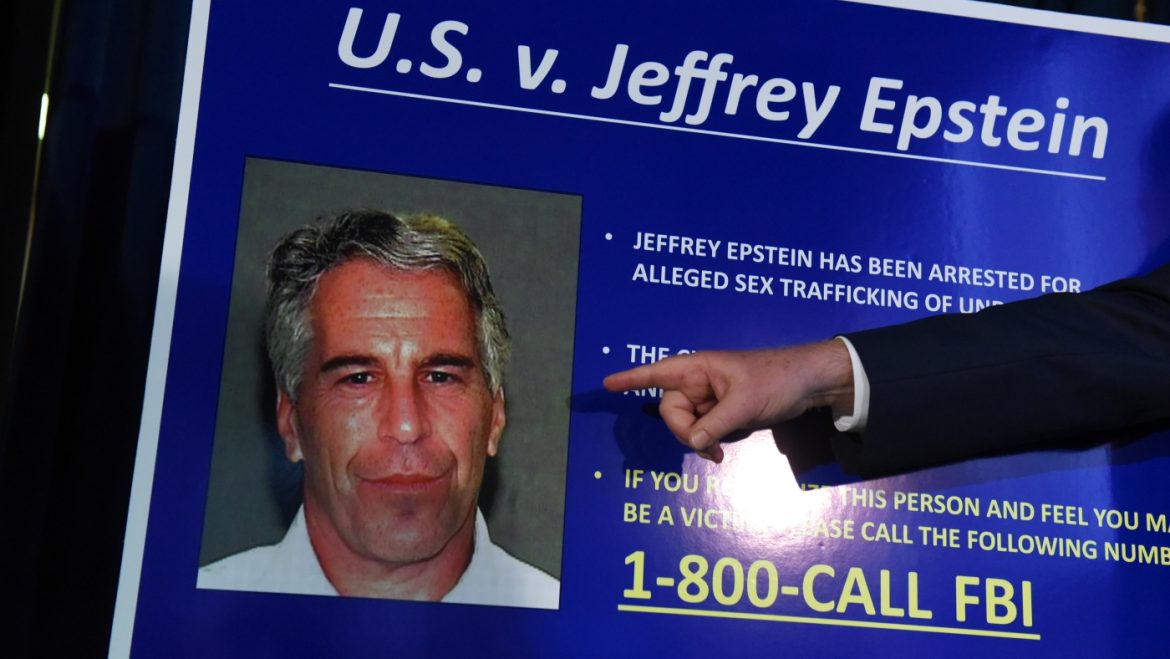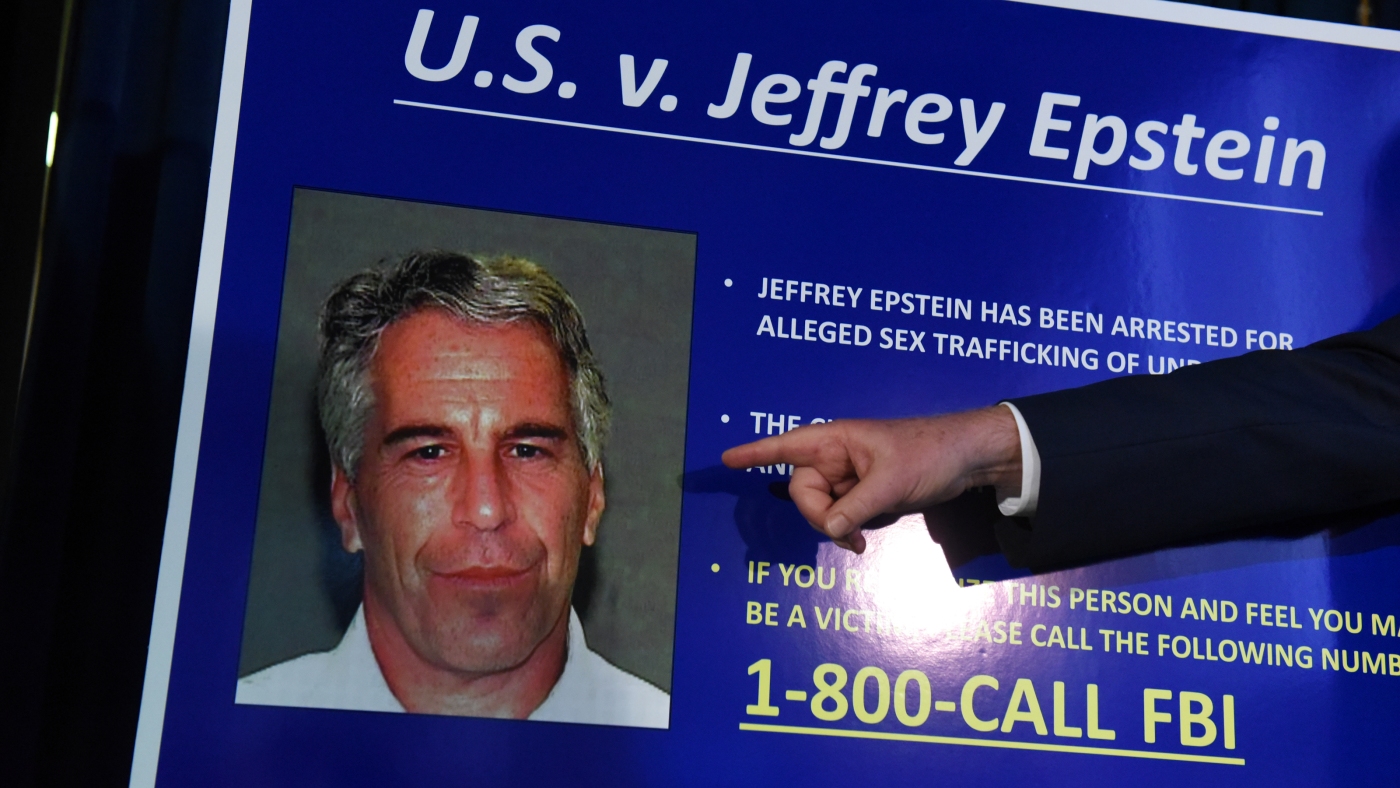The Unsealed Truth? A Deep Dive into the Epstein Grand Jury Transcript Saga
Introduction
The legal saga surrounding Jeffrey Epstein’s crimes has taken another twist, this time centered on the controversial issue of unsealing grand jury transcripts. The debate over whether these documents should be made public has become a battleground for transparency, justice, and the delicate balance between public interest and individual privacy. This report explores the complexities of the situation, examining the arguments for and against unsealing the transcripts and analyzing the potential implications of each outcome.
A Request Denied: The Florida Ruling
The recent denial by a federal judge in Florida to unseal grand jury transcripts related to Jeffrey Epstein’s case has reignited the debate over transparency in the legal system. The judge’s decision, citing legal constraints, has left many questioning the extent to which the public has a right to know the details of such high-profile investigations. This setback has been particularly disheartening for those seeking to expose the full scope of Epstein’s network and the individuals who may have been complicit in his crimes.
The Push for Transparency: Why Unseal the Transcripts?
Advocates for unsealing the grand jury transcripts argue that transparency is a cornerstone of a just and accountable legal system. The public’s right to know the details of the investigation into Epstein’s crimes is not just a matter of curiosity but a fundamental principle of democracy. The potential benefits of unsealing these transcripts are manifold:
Exposing Potential Co-conspirators
The transcripts may contain crucial information about individuals who facilitated or participated in Epstein’s sex trafficking operation. Unsealing them could lead to further investigations and potential prosecutions, ensuring that all those involved are held accountable for their actions.
Holding Institutions Accountable
The transcripts might reveal failures or oversights by law enforcement, government agencies, or other institutions that allowed Epstein’s crimes to continue for so long. This information could prompt necessary reforms and ensure that such lapses do not occur in the future.
Providing Closure for Victims
For the survivors of Epstein’s abuse, access to the transcripts could offer a sense of closure by revealing the extent of his crimes and the involvement of others. This transparency could be a crucial step in their healing process.
Restoring Public Trust
The Epstein case has significantly eroded public trust in the justice system. Unsealing the transcripts could demonstrate a commitment to transparency and accountability, helping to restore faith in the system and reassure the public that justice is being served.
The Case for Secrecy: Protecting Privacy and Due Process
While the arguments for transparency are compelling, there are equally valid reasons to keep grand jury transcripts sealed. The primary concerns revolve around protecting individual privacy and maintaining the integrity of the legal process:
Protecting the Privacy of Witnesses
Grand jury testimony often involves sensitive and personal information. Unsealing the transcripts could expose witnesses to harassment, intimidation, or even physical harm. The potential for such repercussions underscores the importance of maintaining confidentiality to protect those who come forward.
Preserving the Presumption of Innocence
The transcripts may contain accusations against individuals who have not been charged with a crime. Releasing this information could unfairly damage their reputations and livelihoods, violating the principle of the presumption of innocence until proven guilty.
Protecting Ongoing Investigations
If there are ongoing investigations related to Epstein’s crimes, unsealing the transcripts could compromise those investigations by alerting potential targets and allowing them to destroy evidence or alter their testimony. This could undermine the efforts to bring all perpetrators to justice.
Maintaining the Integrity of the Grand Jury Process
Grand jury proceedings are designed to be confidential to encourage witnesses to come forward and provide truthful testimony without fear of reprisal. Unsealing transcripts could undermine this process in future cases, making it more difficult to obtain honest and complete testimony.
The Trump Administration’s Role: A Complex Motivation
The Trump administration’s involvement in the push to unseal the Epstein transcripts adds another layer of complexity to the situation. While the stated goal was transparency, critics have raised questions about the administration’s true motivations:
Political Maneuvering
Some speculate that the Trump administration sought to use the release of the transcripts to damage political opponents or distract from other issues. The potential for political gain could have influenced the administration’s decision to push for transparency.
Appeasing Supporters
Trump’s base, which includes many who are deeply concerned about issues of child sex trafficking, may have pressured the administration to take action on the Epstein case. Responding to this pressure could have been a factor in the administration’s decision.
Genuine Desire for Justice
It is also possible that the administration genuinely believed that unsealing the transcripts was the right thing to do in the interest of justice and transparency. The motivation behind the administration’s actions remains a subject of debate and speculation.
The Legal Hurdles: Why is it so Difficult to Unseal Grand Jury Transcripts?
Grand jury proceedings are traditionally held in secret to encourage witnesses to testify freely without fear of retribution and to protect the reputations of those who are investigated but not charged. This secrecy is codified in law and court rules, making it difficult to unseal grand jury transcripts.
To overcome these legal hurdles, proponents of unsealing the transcripts must demonstrate a “compelling need” that outweighs the reasons for maintaining secrecy. This is a high bar to clear, and it often requires a showing that the public interest in disclosure outweighs the privacy interests of witnesses and the integrity of the grand jury process.
The Ongoing Battle: What’s Next for the Epstein Case?
Despite the setback in Florida, the fight to unseal the Epstein grand jury transcripts is far from over. The DOJ has pursued similar requests in New York, and the issue is likely to continue to be litigated in the courts. Furthermore, pressure from the public and advocacy groups may continue to mount, pushing lawmakers to consider legislative changes that would make it easier to unseal grand jury transcripts in cases of significant public interest.
Unveiling the Truth: The Path Forward
Ultimately, the decision of whether or not to unseal the Epstein grand jury transcripts will have profound implications for the victims, the legal system, and the public’s understanding of this horrific case. While the arguments for transparency are compelling, the need to protect individual privacy and the integrity of the legal process cannot be ignored. The balance between these competing interests will determine whether the full truth about Epstein’s crimes will ever be revealed. As the legal battle continues, the public must remain vigilant in advocating for transparency and accountability, ensuring that justice is served and that the victims of Epstein’s crimes are not forgotten.


